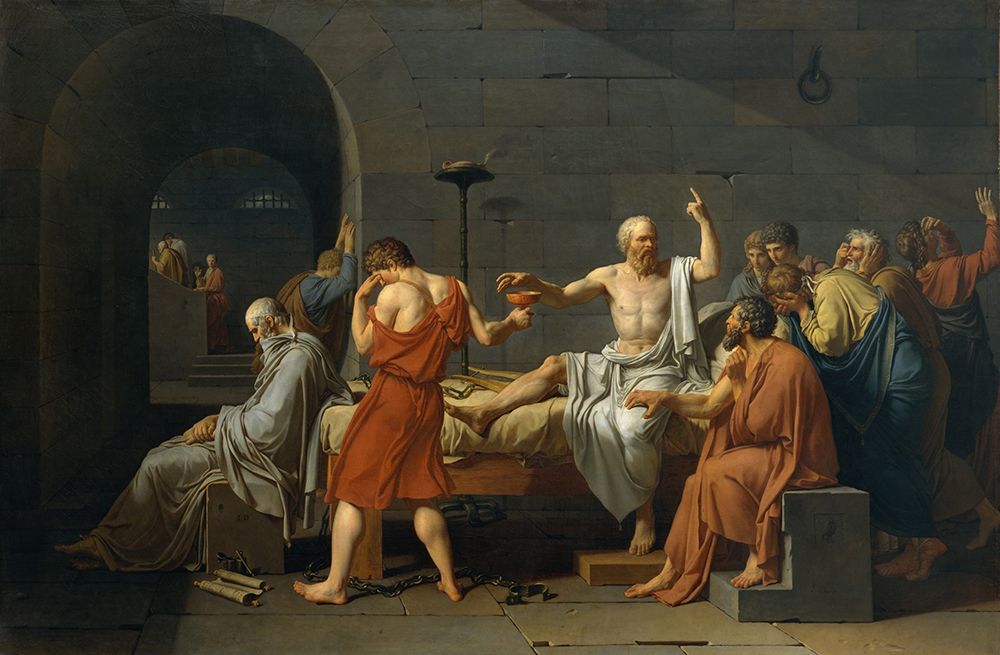What follows are the writings of Plato about why Socrates used his dialectic questioning in the marketplace of Athens, and how it got him into big trouble. Socrates received answers and advice from his inner self, and from the Oracle at Delphi, a religious shrine, and home of Pythia, a priestess who delivered prophesies from the Greek god Apollo. She had famously proclaimed that Socrates was the smartest man in Athens.
Socrates was incredulous. He tried to prove that she was wrong, answering that “he knew nothing worth knowing”. He didn’t know the answers to the big questions of life, about the gods, politics, relationships of life, etcetera. However, the intellectuals, professors, politicians, acted as if they knew. So, he used his dialectics in the marketplace, to find answers, and he famously revealed that the intellectual elite of Athens didn’t really know those answers either. So, Socrates was the smarter because he knew he didn’t know the answers . Most of them became so angered by Socrates’ revealing their ignorance, that they got together and brought him to trial on made up charges against him. At his trial, no substantiated evidence was brought against him.
All accusations were untrue. Socrates was smart and defended himself well. At the end of his trial, before any sentencing, Socrates was told that if he stopped his dialogical investigations, and renounced his beliefs, he could go free. He refused, saying that searching for truths was his lifetime goal, and explained to his accusers that the unexamined life is not worth living. He knew that what he was saying was helpful advice. He told them that he was pointing out misunderstandings and ignorance so they could work them out. Socrates told the jurors that he should be praised by his fellow citizens for showing them what they do not know, and thereby giving them an incentive to improve themselves.
However, when it came to the vote on his innocence or guilt, much of the jury voted with their emotion of anger and fears, rather than with their reason. By only about 30 votes, the jury of 500 Athenians sentenced him to death by Hemlock poisoning. Socrates submitted to his sentence willingly saying I’ve always been a good citizen, and I have always obeyed the laws. Even when his rich friend Crito told Socrates that he could help him escape to another country, Socrates once again refused. That would be morally wrong. I spent my life teaching people how to be morally correct, and I cannot refute or desert my life’s work now.
Socrates died rather than violate the law about his verdict. Nor would he give up what he stood for to appease his oppressors to save his own life. He was historically followed by Jesus, Mahatma Gandhi, Abe Lincoln, Marten Luther King and others.
Socrates is universally known for his teaching, his morality, his virtue, his humanity, his dialectic still used today, and as a teacher of finding wisdom, and truths. Incredibly, 2,400 years later, many of us still haven’t learned how to find wisdom, and truths.
I’d like to thank all of you who took the time to read about this remarkable man.
Request for comment
Have a question or a comment about this topic, I'd love to discuss it more! Fill this form out!
